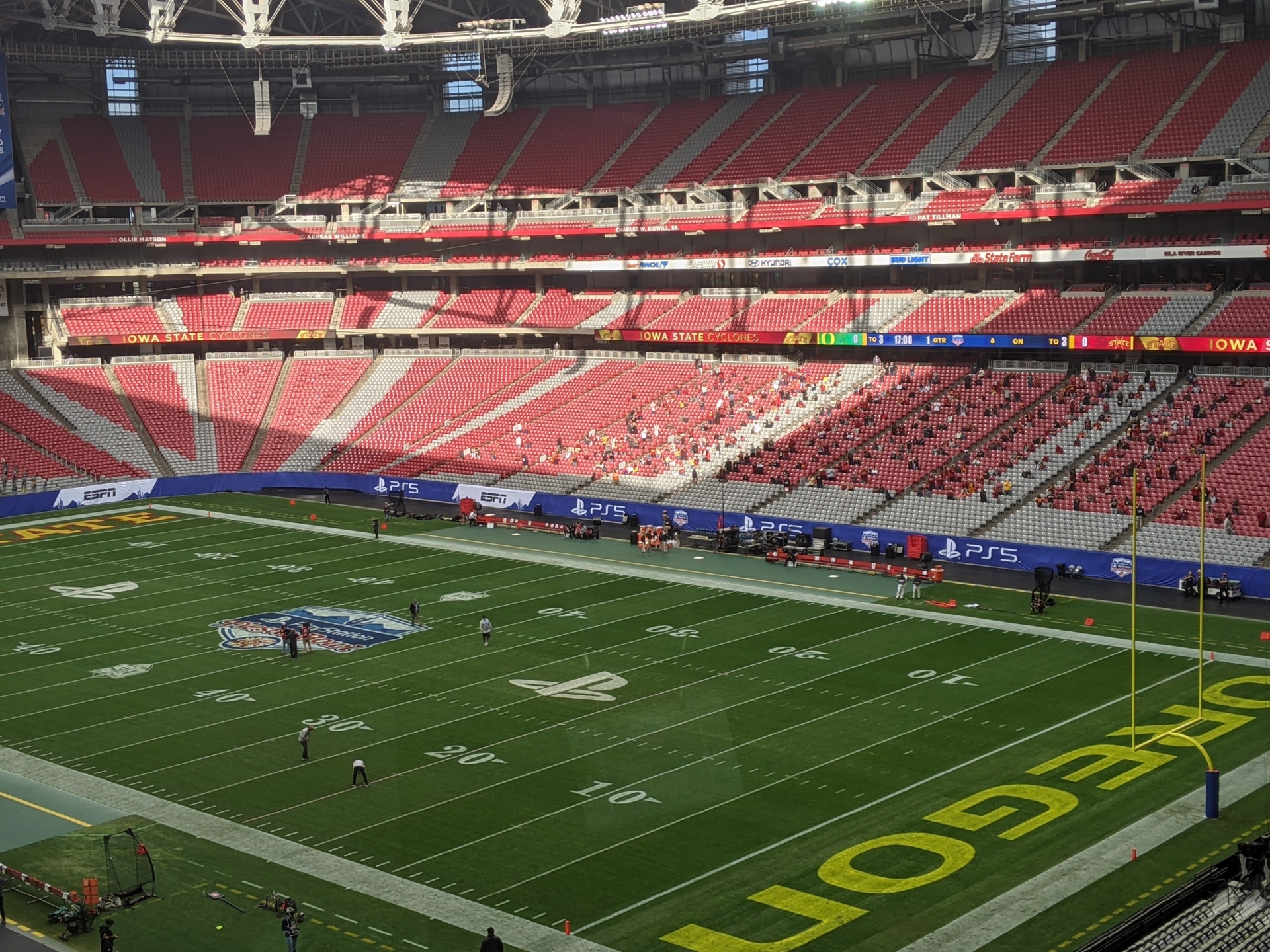Imagine lacing up for the biggest game of your life and walking through the tunnel about to run out onto the field at State Farm Stadium in Glendale, Arizona; the site of Super Bowls, Final Fours and of course, countless Fiesta Bowl showdowns. Your adrenaline is pumping, and you are ready to leave it all on the gridiron. You hear the PA announcer introduce your squad and you burst from the tunnel with smoke and sirens amplifying the moment. As the smoke clears, you emerge to the sound of crickets as you look around and see nothing but empty seats in the stands.
Yes, we have officially turned the calendar to 2021, but the wrath of 2020 continues. It’s no secret that the business of sports, like many other industries, has been upended by the COVID-19 pandemic. It has caused leagues and organizations to cancel, postpone, reschedule and restructure everything about their sport in order to make it possible for the athletes to participate. The worst part is that fans and athletes have both suffered from the new social distancing guidelines.
Athletes suffer from fanless stadiums
Frontline workers, small business owners and those directly affected by COVID-19 have been battling for survival for what seems like forever now. And while those individuals are experiencing the brunt of adversity, it’s much easier to empathize with them than it is to understand how this disease has affected our athletes and entertainers.
On the surface, we view sports as a pastime that allows folks to remove themselves from the minutia of daily life and indulge in something a little less serious. Most of us turn on the game, don our favorite team’s colors and allow our emotions to coincide with the game’s trajectory. But if you dive a little deeper into each contest, each venue, each athlete, you’ll see passion, pride and professionalism that stretches the length of the field and then some.
In 2020, those inherent emotions that fit seamlessly within the wide world of sports have dwindled. Not by choice but by necessity. Not for a competitive advantage but for safety. And while everything that has been done in the name of safety has been absolutely necessary, it has left an emptiness within sports that has yet to be filled.
This year was the 50th anniversary of the Fiesta Bowl, one of the most prestigious postseason contests in college football history. But due to the pandemic, there were no parades, no celebrations, and you guessed it… no fans, with the exception of immediate friends and family.
So, how does that affect the mindset of the players on the field?
Well, if you zoom out and take a look at the big picture, you’ll see players getting hyped after making a big play and celebrating with their teammates. You’ll notice coaches shouting play calls and making adjustments. What you won’t see, or hear rather, are the roars of the crowd on a big third down play. You won’t feeling the stadium shake after a big touchdown. Gamesmanship becomes more important, as you can hear every play call and audible at the line of scrimmage. Athletes can no longer feed off the energy of the crowd, and instead, must find motivation within themselves to keep pushing forward.
Purdy wins Fiesta Bowl Offensive MVP
Then, if you zoom in and focus on a few individual players, you’ll notice that 2020 has stolen a lot more than in-game motivation from these athletes. Take Brock Purdy for example. He is the All-Big 12 First Team quarterback that has led the Iowa State Cyclones to their best record in program history. In doing so, Purdy and the Cyclones locked up their first-ever berth in a New Year’s Six bowl. And not just any New Year’s bowl, but the PlayStation Fiesta Bowl.
Why is that significant? Well, Purdy is an Arizona native that played his high school ball at Perry High School in Gilbert. The Fiesta Bowl marks the first time the junior QB gets to play in his home state since committing to Iowa State in 2018.
Normally, Purdy would be arriving to a parade of friends and family members welcoming him back and celebrating his success this season. Instead, his family was unable to greet him. In addition, he was only allowed to invite a handful of people to attend the game, as attendance was limited to just immediate family of participating players.
Iowa State defeated Oregon 34-17 to become Fiesta Bowl champions, putting an exclamation point on the Cyclones’ historic season. Purdy led the way with 199 total yards and two touchdowns and was named Offensive MVP. As I watched him hoist the trophy, I couldn’t help but feel bad for the guy. Not only did he just accomplish the most important feat in his career, but he essentially did it in his hometown. Unfortunately, the atmosphere didn’t match the accomplishment.
In other words, COVID-19 not only threw a wrench in the entire 2020 season, but it also prevented players from enjoying traditional bowl festivities and celebrating with their families during this once-in-a-lifetime experience.




